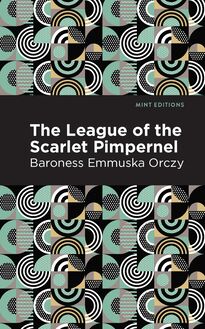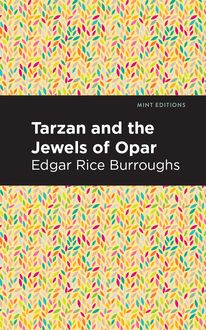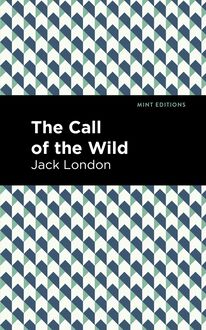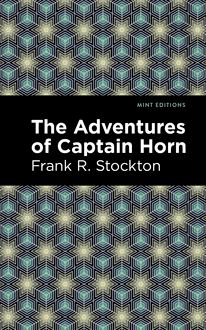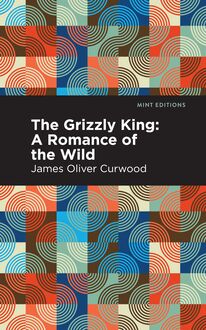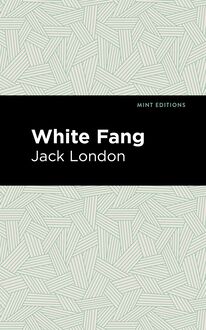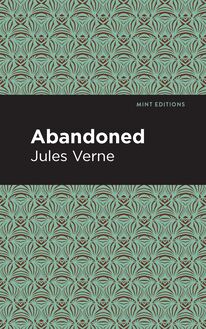-
 Univers
Univers
-
 Ebooks
Ebooks
-
 Livres audio
Livres audio
-
 Presse
Presse
-
 Podcasts
Podcasts
-
 BD
BD
-
 Documents
Documents
-
- Cours
- Révisions
- Ressources pédagogiques
- Sciences de l’éducation
- Manuels scolaires
- Langues
- Travaux de classe
- Annales de BEP
- Etudes supérieures
- Maternelle et primaire
- Fiches de lecture
- Orientation scolaire
- Méthodologie
- Corrigés de devoir
- Annales d’examens et concours
- Annales du bac
- Annales du brevet
- Rapports de stage
La lecture à portée de main
Vous pourrez modifier la taille du texte de cet ouvrage
Découvre YouScribe en t'inscrivant gratuitement
Je m'inscrisDécouvre YouScribe en t'inscrivant gratuitement
Je m'inscrisEn savoir plus
Vous pourrez modifier la taille du texte de cet ouvrage
En savoir plus

Description
During a business trip, Philip Whittmore travels along the Churchill River of Northern Canada. Expecting to recognize his surroundings, Philip is surprised to learn that he is entirely unfamiliar with the terrain. When his travels lead him to stumble upon a settlement called Fort O’ God, Philip feels drawn to the community, enticed by the beauty of a local woman named Jeanne. As Philip falls deeply in love with the woman, Jeanne introduces him to her community and the surrounding land. However, the longer Philip stays in Fort O’ God, the more intrigued he becomes. Convinced that Jeanne is hiding something about herself and the history of the settlement, Philip becomes determined to discover the secrets of Fort O’ God. Written by the highly celebrated author, James Oliver Curwood, Flower of the North: A Modern Romance is a fast-paced and compelling adventure with elements of romance and mystery. Written in decorated and vivid prose, Flower of the North: A Modern Romance provides a stunning portrayal of the Northern region of Canada, enticing readers with a touching romance and intriguing plot. First published nearly one-hundred years ago in 1921, this Curwood classic has remained to be fresh and captivating for modern audiences. This edition of Flower of the North: A Modern Romance by James Oliver Curwood now features a new, eye-catching cover design and is printed in a font that is both modern and readable. With these accommodations, this edition of Flower of the North: A Modern Romance crafts an accessible and pleasant reading experience for modern audiences while restoring the original beauty of James Oliver Curwood’s literature.
Sujets
Informations
| Publié par | Mint Editions |
| Date de parution | 14 mai 2021 |
| Nombre de lectures | 0 |
| EAN13 | 9781513285740 |
| Langue | English |
| Poids de l'ouvrage | 2 Mo |
Informations légales : prix de location à la page 0,0500€. Cette information est donnée uniquement à titre indicatif conformément à la législation en vigueur.
Extrait
Flower of the North
A Modern Romance
James Oliver Curwood
Flower of the North: A Modern Romance was first published in 1912.
This edition published by Mint Editions 2021.
ISBN 9781513280721 | E-ISBN 9781513285740
Published by Mint Editions®
minteditionbooks.com
Publishing Director: Jennifer Newens
Design & Production: Rachel Lopez Metzger
Project Manager: Micaela Clark
Typesetting: Westchester Publishing Services
C ONTENTS I II III IV V VI VII VIII IX X XI XII XIII XIV XV XVI XVII XVIII XIX XX XXI XXII XXIII XXIV XXV
I
“Such hair! Such eyes! Such color! Laugh if you will, Whittemore, but I swear that she was the handsomest girl I’ve ever laid my eyes upon!”
There was an artist’s enthusiasm in Gregson’s girlishly sensitive face as he looked across the table at Whittemore and lighted a cigarette.
“She wouldn’t so much as give me a look when I stared,” he added. “I couldn’t help it. Gad, I’m going to make a full-page ‘cover’ of her to-morrow for Burke’s. Burke dotes on pretty women for the cover of his magazine. Why, demmit, man, what the deuce are you laughing at?”
“Not at this particular case, Tom,” apologized Whittemore. “But—I’m wondering—”
His eyes wandered ruminatively about the rough interior of the little cabin, lighted by a single oil-lamp hanging from a cross-beam in the ceiling, and he whistled softly.
“I’m wondering,” he went on, “if you’ll ever strike a place where you won’t see ‘one of the most beautiful things on earth.’ The last one was at Rio Piedras, wasn’t it, Tom? A Spanish girl, or was she a Creole? I believe I’ve got your letter yet, and I’ll read it to you to-morrow. I wasn’t surprised. There are pretty women down in Porto Rico. But I didn’t think you’d have the nerve to discover one up here—in the wilderness.”
“She’s got them all beat,” retorted the artist, flecking the ash from the tip of his cigarette.
“Even the Valencia girl, eh?”
There was a chuckling note of pleasure in Philip Whittemore’s voice as he leaned half across the table, his handsome face, bronzed by snow and wind, illumined in the lamp-glow. Gregson, in strong contrast, with his round, smooth cheeks, slim hands, and build that was almost womanish, leaned over his side to meet him. For the twentieth time that evening the two men shook hands.
“Haven’t forgotten Valencia, eh?” chuckled the artist, gloatingly. “Lord, but I’m glad to see you again, Phil. Seems like a century since we were out raising the Old Ned together, and yet it’s less than three years since we came back from South America. Valencia! Will we ever forget it? When Burke handed me his first turn-down a month ago and said, ‘Tom, your work begins to show you want a rest,’ I thought of Valencia, and was so confoundedly homesick for those old days when you and I pretty nearly started a revolution, and came within an ace of getting our scalps lifted, that I moped for a week. Gad, do I remember it? You got out by fighting, and I through a pretty girl.”
“And your nerve,” chuckled Whittemore, crushing the other’s hand. “That was when I made up my mind you were the nerviest man alive, Greggy. Did you ever learn what became of Donna Isobel?”
“She appeared twice in Burke’s, once as the ‘Goddess of the Southern Republics’ and again as ‘The Girl of Valencia.’ She married that reprobate of a Carabobo planter, and I believe they’re happy.”
“It seems to me there were others,” continued Whittemore, pondering for a moment in mock seriousness. “There was one at Rio whom you swore would make your fortune if you could get her to sit for you, and whose husband was on the point of putting six inches of steel into you for telling her so, when I explained that you were young and harmless, and a little out of your head—”
“With your fist,” cried Gregson, joyously. “Gad, but that was a mighty blow! I can see that knife now. I was just beginning my paternoster when—chug!—and down he went! And he deserved it. I said nothing wrong. In my very best Spanish I asked her if she would sit for me, and why the devil did he take that as an insult? And she was beautiful.”
“Of course,” agreed Whittemore. “If I remember, she was ‘the loveliest creature you had ever seen.’ And after that there were others—a score of them at least, each lovelier than the one before.”
“They make up my life,” said Gregson, more seriously than he had yet spoken. “They’re the only thing I can draw and do well. I’d think an editor was mad if he asked me to do something without a pretty woman in it. God bless ’em, I hope I’ll go on seeing them forever. When I can’t see beauty in woman I want to die.”
“And you always want to see it in the superlative degree.”
“I insist upon it. If she lacks something, as Donna Isobel wanted color, I imagine that it is there, and she is perfect! But this one that I saw to-night is perfect! Now what I want to know is this, Who the deuce is she!”
—“where can she be found, and will she sit for a ‘Burke,’ two or three miscellaneous, and a ‘study’ for the annual sale,” struck in Whittemore. “Is that it?”
“Exactly. You’ve a natural ability for hitting the nail on the head, Phil.”
“And Burke told you to take a rest.”
Gregson offered his cigarettes.
“Yes, Burke is a good-natured, poetic old soul who has a horror of spiders, snakes, and sky-scrapers. He said to me: ‘Greggy, go and seek nature in some quiet, secluded place, and forget everything for a fortnight or two except your clothes and half a dozen cases of beer.’ Rest! Nature! Beer! Think of those cheerful suggestions, Phil, while I was dreaming of Valencia, of Donna Isobels, and places where Nature cuts up as though she had been taking champagne all her life. Gad, your letter came just in time!”
“And I told you little enough in that,” said Philip, quickly, rising and pacing uneasily back and forth across the cabin floor. “I gave you promise of excitement, and urged you to join me if you could. And why? Because—”
He turned sharply, and faced Gregson across the table.
“I wanted you to come because the thing that happened down in Valencia, and that other at Rio, isn’t a circumstance to the hell that’s going to cut loose pretty soon up here—and I’m in need of help. Understand? It’s not fun—this time. I’m playing a single hand in what looks like a losing game. If I ever needed a fighter in my life I need one now. That’s why I sent for you.”
Gregson shoved back his chair and rose to his feet. He was a head shorter than his companion, of almost delicate physique. Yet there was something in the cold gray-blue of his eyes, a peculiar hardness of his chin, that compelled one to look at him twice and rendered first judgment unsafe. His slim fingers closed like steel about Philip’s.
“Now you’re coming down to business, Phil,” he exclaimed. “I’ve been waiting with the patience of Job—or of little Bobby Tuckett, if you remember him, who began courting Minnie Sheldon seven years ago—and married her the day after I got your letter. I was too busy figuring out what you hadn’t written to go to the wedding. I tried to read between the lines, and fell down completely. I’ve been thinking all the way up from Le Pas, and I’m still at sea. You called. I came. What’s up?”
“It’s going to sound a little mad—at first, Greggy,” chuckled Whittemore, lighting his pipe. “It’s going to give your esthetic tastes a jar. Look here!”
He seized Gregson by the arm and led him to the door.
The cold northern sky was brilliant with stars. The cabin, its logs half smothered in dying masses of verdure which had climbed about it during the summer, was built on the summit of one of the wind-cropped ridges which are called mountains in the far north. Into that north swept infinite wilderness, white and gray where the starlit tops of the spruce rose up at their feet, black in the distance. From somewhere out of it there came the low, weeping monotone of surf beating on a shore. Philip, with one hand on Gregson’s shoulder, pointed with the other into the lonely desolation which they were facing.
“There isn’t much between us and the Arctic Ocean, Greggy,” he said. “See that light off there, like a great fire that has half a mind to die out one minute and flares up the next? Doesn’t it remind you of the night we got away from Carabobo, when Donna Isobel pointed out our way to us, with the moon coming up over the mountains as a guide? That isn’t the moon. It’s the aurora borealis. You can hear the wash of the Bay down there, and if you’re keen you can catch the smell of icebergs. There’s Fort Churchill—a rifle-shot beyond the ridge, asleep. There’s nothing but Hudson’s Bay Company’s posts, Indian camps, and trappers between here and civilization, which is four hundred miles down there. Seems like a quiet and peaceful country, doesn’t it? There’s something about it that makes you thrill and wonder if this isn’t the biggest part of the universe after all. Listen! Hear the Indian dogs wailing down at Churchill! That’s the primal voice in this world, the voice of the wild. Even that beating of the surf is filled with the same thing, for it’s rolling up mystery instead of history. It is telling what man doesn’t know, and in a language which he cannot understand. You’re a beauty scientist, Greggy. This must sink deep.”
“It does,” said Gregson. “What the deuce are you getting at, Phil?”
“I’m arriving gradually and without undue haste to the point, Greggy. I’m about to tell you why I induced you to join me up here. I hesitate at the last word. It seems almost brutal, taking into consideration your philosophy of beauty, to drop from all this—from that blackness and mystery out there, from Donna Isobels and pretty eyes, down to—fish.”
“Fish!”
“Yes, fish.”
Gregson, lighting a fresh cigarette, held the match so that the tiny flame lighted up his companion’s face for a moment.
“Look here,” he expostulated, “you haven’t got me up here to go—fishing?”
“Yes—and no,” said Philip. “But even if I have—”
He caught Gregson by the arm again, and t
-
 Univers
Univers
-
 Ebooks
Ebooks
-
 Livres audio
Livres audio
-
 Presse
Presse
-
 Podcasts
Podcasts
-
 BD
BD
-
 Documents
Documents
-
Jeunesse
-
Littérature
-
Ressources professionnelles
-
Santé et bien-être
-
Savoirs
-
Education
-
Loisirs et hobbies
-
Art, musique et cinéma
-
Actualité et débat de société
-
Jeunesse
-
Littérature
-
Ressources professionnelles
-
Santé et bien-être
-
Savoirs
-
Education
-
Loisirs et hobbies
-
Art, musique et cinéma
-
Actualité et débat de société
-
Actualités
-
Lifestyle
-
Presse jeunesse
-
Presse professionnelle
-
Pratique
-
Presse sportive
-
Presse internationale
-
Culture & Médias
-
Action et Aventures
-
Science-fiction et Fantasy
-
Société
-
Jeunesse
-
Littérature
-
Ressources professionnelles
-
Santé et bien-être
-
Savoirs
-
Education
-
Loisirs et hobbies
-
Art, musique et cinéma
-
Actualité et débat de société
- Cours
- Révisions
- Ressources pédagogiques
- Sciences de l’éducation
- Manuels scolaires
- Langues
- Travaux de classe
- Annales de BEP
- Etudes supérieures
- Maternelle et primaire
- Fiches de lecture
- Orientation scolaire
- Méthodologie
- Corrigés de devoir
- Annales d’examens et concours
- Annales du bac
- Annales du brevet
- Rapports de stage
